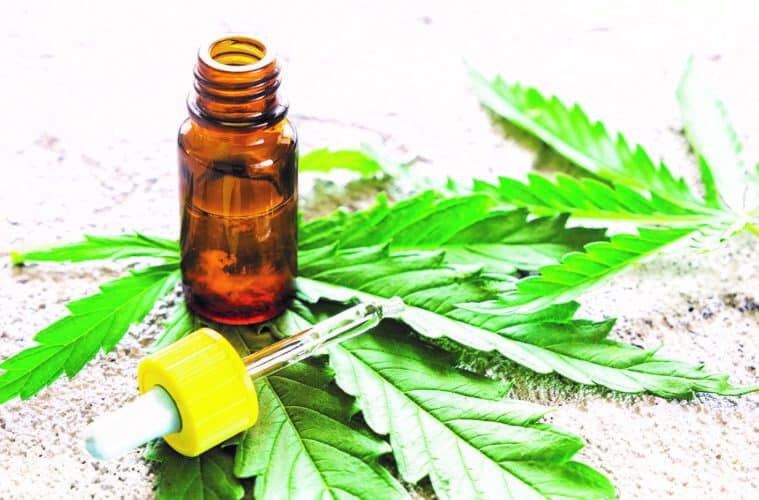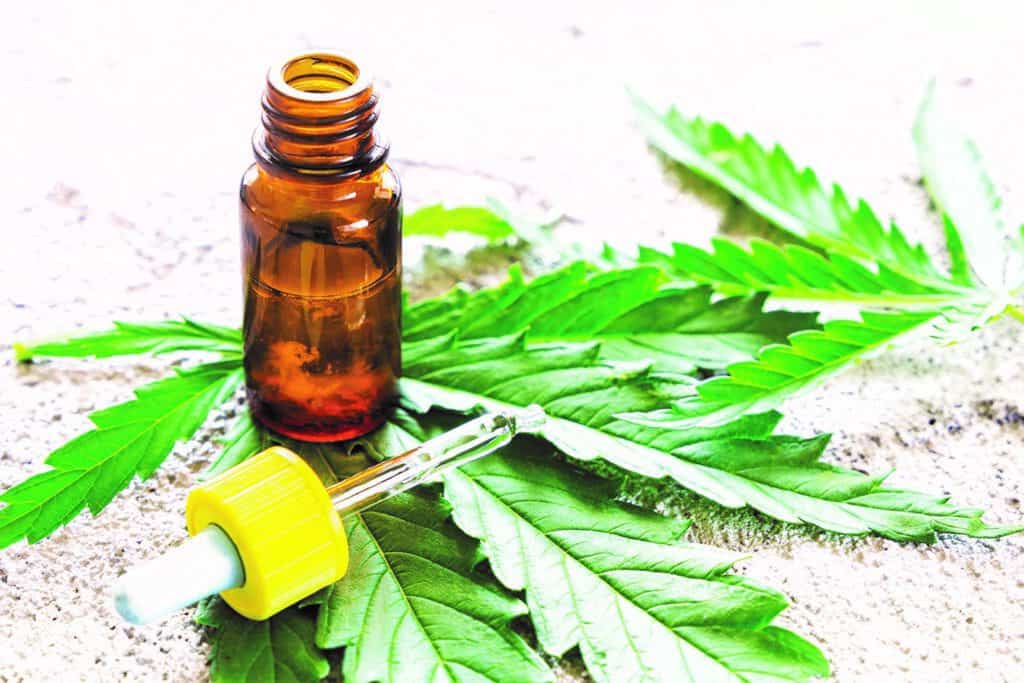Consumer interest in cannabidiol has been growing rapidly over the last few years. Now, a new report has confirmed that the CBD market is one of the fastest growing wellbeing product categories…
Healthcare professionals across the United Kingdom (UK) have been increasingly aware of the beneficial properties of cannabidiol (CBD) for some time, but now a new report has not only confirmed that the market is actually three to six times larger than previous estimates, but has also called on the government to support a thriving CBD market.
For its report CBD in the UK: Towards a responsible, innovative and high-quality cannabidiol industry’, the Centre for Medicinal Cannabis (CMC) conducted the most comprehensive review ever undertaken of the sector in the UK.
The report is comprised of four elements:
- Market sizing – comprehensive economic analysis of CBD market in UK.
- Product testing – blind testing of 30 major CBD brands available on
UK market.
- Consumer survey of 2000 members of the public by YouGov.
- CMC Policy recommendations – presented to senior officials at the UK Home Office, MHRA, Food Standards Agency and Department of Health and Social Care.
The study’s findings certainly make for interesting reading!
CMC’s market research estimates that the CBD market is currently one of the fastest growing wellbeing product categories in the UK. At the current rate it will be worth almost £1 billion per annum by 2025, equivalent in size to the current entire UK herbal supplement market.
According to CMC, the size of the UK CBD market is actually between three and six times larger than previous estimates. The CMC research estimates that 1.3 million consumers are spending over £300M per year on CBD products, making the CBD market larger than the total UK vitamin D (£145M) and vitamin C market (£119M) combined.
The market, says CMC, is currently growing at double digits and expected to be just short of £1bn by 2025.
Among other key findings in
the report:
- Approximately six million adults have used CBD in the UK.
- Eleven per cent of the population had consumed a CBD product in the last year.
- Recent use rates were higher in the under 55 age groups, ranging from fifteen per cent of 25-34 year olds, to seven per cent of 55-64 year olds and eight per cent of those aged 65+.
- Usage was higher on average among females (thirteen per cent) than males (nine per cent).
- Use was higher in certain parts of the country, ie, Wales and Northern Ireland.
- Three quarters of respondents agreed that UK hemp farmers should be able to process hemp flowers and leaves to supply CBD market. Currently all CBD source material sold in the UK is imported.
The review found that over 70 per cent of UK consumers are purchasing CBD in tincture/oil or capsule form, suggesting a desire to use products systemically and at higher therapeutic doses.
In total, 30 oil products available in the UK were selected for the blind testing exercise using PhytoVista – a reputable UK-based laboratory.
While CMC’s report was generally very positive, it did sound a note of warning on various aspects of the market.
For a start, the majority of CBD users indicated that they purchased their CBD online, highlighting that patients were researching the benefits of CBD and then sourcing the products without the intervention of a healthcare professional.
Equally worrying was the fact that knowing that the CBD product was made by a supplier that met recognised high standards (32 per cent) and knowing that the contents were not contaminated with pesticides or heavy metals (25 per cent) were the most important priorities for consumers when choosing a CBD product – far ahead of knowing that a CBD product was 100 per cent legal (fourteen per cent), or from where in the world it originated (five per cent).
Also, while CMC’s study indicated that the best CBD products are very high quality and are good options for today’s consumers, it also found that only eleven of the products surveyed (38 per cent) were within ten per cent of the advertised CBD content and a similar amount had less than 50 per cent of the advertised CBD content.
‘The industry as a whole,’ CMC said, ‘must use these results to understand the areas of weakness in producing a quality product that consumers can trust, and use the findings to justify additional steps they should take for their own production, or for reassurance across their supply chain, that some of these negative results are not reflected in their own products.’
When it came to regulations, CMC voiced very definite concerns, pointing out that while all cannabinoids for human and animal consumption exist within a regulated regime, there are varying levels of restriction. The CBD market in the UK, CMC said, is underregulated: a fact, which poses challenges for both the industry and consumers.
‘Regulations governing CBD products are not specific to cannabidiol,’ it said, ‘and there is no separate regulatory pathway that has been designed for these products in the UK. The CBD industry like any consumer market, is subject to a range of generic regulations governing food, cosmetics and medicines, and the end product category determines the rules by which those products can be produced, distributed and marketed.
The regulators have clear roles depending on the product category, and their remits are designed not to overlap – so what is a medicine, cannot be a food, for example. Regulators have not provided clarity on recent developments relating to cannabidiol and this has perpetuated the uncertainty about which products are compliant, and what is to be expected by way of enforcement action for companies breaching the law.’
As a result of its comprehensive research, CMC made several wide-ranging recommendations with regard to the CBD market.
‘Many CBD retailers in the UK,’ CMC said in its executive summary, ‘are trading according to a folk interpretation of domestic law governing controlled substances that is incorrect; however, this is not surprising because the law is complex, and legal clarity – though sought repeatedly – has not been provided.
‘Common misreadings of the law regarding CBD are a major and widespread problem in the UK CBD sector that undermines the industry and can mislead consumers.
‘The main market challenges are: improving the education of consumers; defining a proportionate regulatory pathway; rooting out bad practice; creating an infrastructure to support a quality standard; maintaining incentives to invest in clinical trials; and taking the necessary steps to level the playing field in support of UK producers.
‘Some of these challenges can only be addressed by government, and others should only be addressed by industry taking a lead. The consumer will influence how the CBD sector evolves, but the public cannot, by their consumer habits alone, change the trajectory of this industry – that requires government action.
‘Addressing poor practice and promoting CBD products responsibly will require proper self-regulation and a focus on compliance and public education efforts. Credibility will come from advancing the evidence-base.’
In addition to recommendations related to regulation, CMC also called upon the government to support the thriving CBD market, which is currently reliant on imports.
‘The CBD industry in the UK,’ it said, ‘is one of the largest in Europe, but it is entirely built upon a raw ingredient produced elsewhere in Europe or further afield, not one harvested domestically. The industry in the UK is not building from the same agricultural foundation that other countries take for granted, and this undermines UK competitiveness in a key growth sector.
‘The hemp industry is not financially viable in the UK long-term unless it can compete on a level playing field with other hemp producers. There was overwhelming support from three quarters of respondents to the YouGov survey when asked whether UK hemp farmers should have the freedom to process the flowers and leaves of hemp crops grown in the UK to supply CBD.’
The CMC report did, however, end on a positive note for the CBD industry.
‘The analysis for this report,’ it said, ‘suggests the prospects for the UK’s CBD market are strong, with rising demand and a willingness among British consumers to try CBD products and spend significant sums on a regular wellness routine that encompasses CBD.
‘There are a number of future trends for the CBD sector in the UK and globally, and some fundamental market developments that the British CBD sector can expect to encounter in the next three years.
‘Among the most important will be increased product diversification and greater competition and imports into the UK, along with the issues around provenance and traceability.’
Later this year, CMC will announce further developments, towards creating the first credible, industry-owned self-regulation initiative backed by many of the reputable CBD companies operating in the UK with a permanent laboratory testing and accreditation partner.
For a start, the majority of CBD users indicated that they purchased their CBD online, highlighting that patients were researching the benefits of CBD and then sourcing the products without the intervention of a healthcare professional.
Equally worrying was the fact that knowing that the CBD product was made by a supplier that met recognised high standards (32 per cent) and knowing that the contents were not contaminated with pesticides or heavy metals (25 per cent) were the most important priorities for consumers when choosing a CBD product – far ahead of knowing that a CBD product was 100 per cent legal (fourteen per cent), or from where in the world it originated (five per cent).
Also, while CMC’s study indicated that the best CBD products are very high quality and are good options for today’s consumers, it also found that only eleven of the products surveyed (38 per cent) were within ten per cent of the advertised CBD content and a similar amount had less than 50 per cent of the advertised CBD content.
As a result of its comprehensive research, CMC made several wide-ranging recommendations with regard to the CBD market.
‘Many CBD retailers in the UK,’ CMC said in its executive summary, ‘are trading according to a folk interpretation of domestic law governing controlled substances that is incorrect; however, this is not surprising because the law is complex, and legal clarity – though sought repeatedly – has not been provided.
‘Common misreadings of the law regarding CBD are a major and widespread problem in the UK CBD sector that undermines the industry and can mislead consumers.
‘The main market challenges are: improving the education of consumers; defining a proportionate regulatory pathway; rooting out bad practice; creating an infrastructure to support a quality standard; maintaining incentives to invest in clinical trials; and taking the necessary steps to level the playing field in support of UK producers.
‘Some of these challenges can only be addressed by government, and others should only be addressed by industry taking a lead. The consumer will influence how the CBD sector evolves, but the public cannot, by their consumer habits alone, change the trajectory of this industry – that requires government action.
‘Addressing poor practice and promoting CBD products responsibly will require proper self-regulation and a focus on compliance and public education efforts. Credibility will come from advancing the evidence-base.’
In addition to recommendations related to regulation, CMC also called upon the government to support the thriving CBD market, which is currently reliant on imports.
‘The CBD industry in the UK,’ it said, ‘is one of the largest in Europe, but it is entirely built upon a raw ingredient produced elsewhere in Europe or further afield, not one harvested domestically. The industry in the UK is not building from the same agricultural foundation that other countries take for granted, and this undermines UK competitiveness in a key growth sector.
‘The hemp industry is not financially viable in the UK long-term unless it can compete on a level playing field with other hemp producers. There was overwhelming support from three quarters of respondents to the YouGov survey when asked whether UK hemp farmers should have the freedom to process the flowers and leaves of hemp crops grown in the UK to supply CBD.’
Later this year, CMC will announce further developments, towards creating the first credible, industry-owned self-regulation initiative backed by many of the reputable CBD companies operating in the UK with a permanent laboratory testing and accreditation partner.
CBD and pain relief
Despite being prohibited by law, some unscrupulous CBD companies are directly marketing their products for pain relief.
It’s estimated that almost half the UK population – around 28 million people – is living with chronic pain.
Despite painkillers being one of the most commonly-prescribed medications, many patients feel that this is inadequate, and so have turned to CBD as a ‘miracle cure’. Products containing cannabidiol have some significant drug interactions with liver enzymes, and pharmacists are well placed to intervene and help patients try these products safely.
Cannabis has actually been used as a form of pain relief for around 5000 years, and was a popular remedy for sciatica and neuralgia during the 1800s. There is even evidence that Queen Victoria used it to relieve period pains. Towards the end of the 19th century, it was eclipsed by newer analgesics, such as aspirin and purified morphine, although cannabis continued to be used as a sedative and sleep aid up until 1971, when ‘tincture of cannabis’ was removed from the British Pharmacopea due to more standardized medicines being available.
The shift back into favour began in 2017, when the World Health Organization acknowledged that CBD had the potential to help pain and other health issues including anxiety and insomnia. The argument for CBD was reinforced in 2018 when UK law was changed to permit doctors to prescribe cannabis under special circumstances.
CBD available in retail outlets and online supposedly contains some of the same ingredients as are in prescribed ‘medical cannabis’. As the CMC report found, these are often of low quality and of poor provenance. A recent statement by the National Pharmacy Association clarified how pharmacists should approach CBD sales.
Canidol Pharmaceutics has a helpful guide to compliant provision of CBD to patients, along with training available for free on their website. It is very likely that sales of CBD will now be part of the GPhC inspection model and pharmacists should consider provision of CBD as a clinical service, rather than a retail sale. The UK Cannabis Clinic www.ukcannabisclinic.com allows for provision of cannabis-based products (including licensed products like Sativex) in an entirely compliant way and using a PGD type structure. This is novel in the UK and is likely to become the gold standard.
Pharmacists should be urged to advise patients to seek support from them before embarking on self-medication with cannabinoids.
Despite its increasing popularity with the public, in the UK at the moment there are few cannabis-based products (routinely commissioned for use) prescribed on the NHS. (There around 80 prescriptions issued nationally last year), and both the Faculty of Pain Medicine and the British Pain Society support the view that future research is required to evaluate the safety, efficacy and harms of cannabis-based preparations in pain management. This research is being carried out by the UK Cannabis Clinic, a pharmacy-based clinical system, which is gathering the primary data to support the development of future guidelines.





